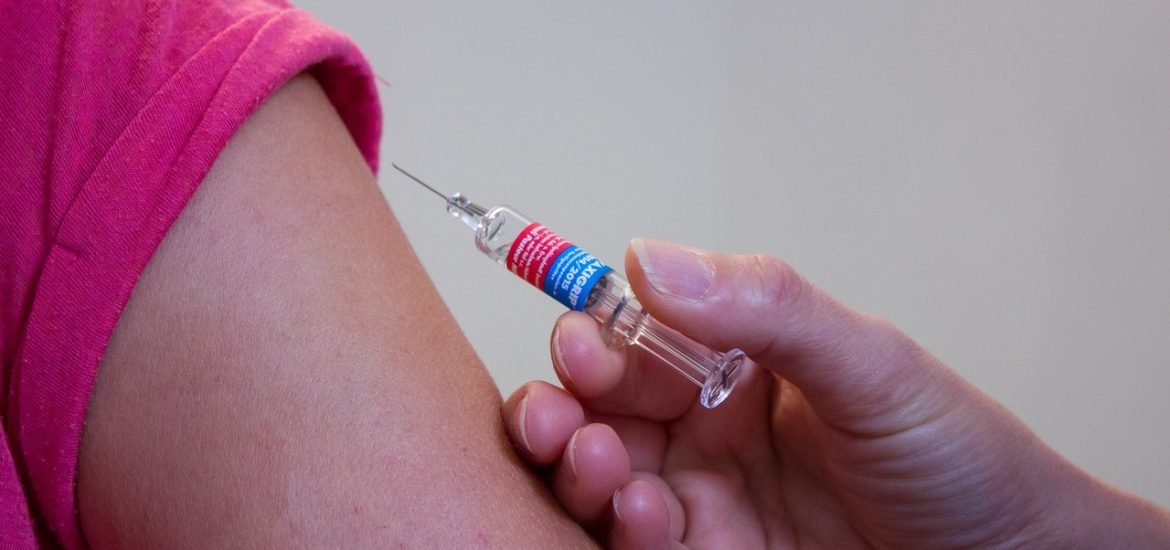
Following measles outbreaks and a growing anti-vaccine movement in Europe, mandatory vaccines have become a major campaign issue in Italy’s upcoming election on 4 March.
Mainstream political parties and populists have found themselves at odds over the Italian government’s decision last year to raise the number of mandatory childhood vaccinations from four to 10. The move was prompted by a measles outbreak in 2017, which infected 5,000 people and killed four.
The compulsory vaccinations, known as the “Lorenzin law,” were promoted by Beatrice Lorenzin, who served as health minister in Paolo Gentiloni’s government. The law raised alarm among parents who fear vaccines could be linked to side effects or even to autism.
Lorenzin remains committed to immunisation efforts. Last month, she created a new centrist political party called Civica Popolare with the slogan, “Vaccinate against incompetence.” As Politico reports, she has urged scientists to run on her party with her in order to help counter what she views as fear-mongering about her vaccination movement. She told Politico the party has opened its lists to individuals including researchers and scientists “who will be allowed to run as independent candidates, without necessarily embracing the rest of our political agenda.”
However, Lorenzin faces opposition from populist parties who have been gaining momentum. The anti-establishment 5-Star Movement and right-wing Northern League have both pledged to repeal her anti-vaccine law if they take control.
“These two large political forces are surfing the wave of fear and ignorance spread by blogs and anti-scientific sites,” Lorenzin said in the interview with Politico. “They have replaced their anti-state revolt with an anti-science approach.”
Lorenzin told Politico she expects “strong numbers” for the 5-Stars and Northern League, so “we need to have a group of lawmakers able to represent the strong values of science.”
European Commissioner for Health Vytenis Andriukaitis told reporters last month that he is “very worried” about candidates in Italy seizing on public health issues such as vaccines. He said the Lorenzin law is “in line with science,” and that “politicians have to understand that. You are responsible if figures of vaccinated people are going down.” He added that the issue is “very dangerous for our society.”
Measles is becoming an increasing problem in Europe, and distrust in vaccines is thought to be one of the causes. In his State of the European Union speech in September, European Commission President Jean-Claude Juncker said, “It is unacceptable that in 2017 there are still children dying of diseases that should long have been eradicated in Europe.”
Measles cases across Europe tripled last year, rising to more than 14,450, according to figures from the European Centre for Disease Prevention and Control. Italy had more cases of measles than almost any other country in the EU, with Romania being the only exception. Cases in Italy increased six-fold between 2016 and 2017. In 95% of them, the patient had either not been vaccinated or not received both of the recommended doses.
As a result, mandatory immunisation has also been gaining attention elsewhere in Europe. The French government introduced requirements of 11 childhood vaccinations this year, a move that was followed by vocal responses among the public. A survey last year found that nearly a third of French people do not trust vaccines, with just over half of participants saying the benefits of vaccines outweigh the risks. In recent months, Germany and Romania have also considered using fines to push parents to vaccinate their children.
Although Lorenzin has criticised 5-Stars and Northern League for attempting to undermine scientific evidence, her opponents say their goal is to restore parental autonomy rather than challenge science.
“We are the movement that has always sustained parents’ awareness in the vaccination process, but we’ve never been against vaccines,” said Luca Coletto to Politico. Coletto is a member of the Northern League and serves as health commissioner of Italy’s northern Veneto region. The region has been a key opponent of the Lorenzin law.
5-Stars proposed getting rid of mandatory vaccines in 2015, but has since relaxed their position. Recently, the party’s leader Luigi Di Maio said he would reinstate the rules that were in place prior to the Lorenzin law instead of eliminating requirements altogether. Doing so would reduce the obligation to only four vaccines.
Others have stood firm on their position and were disappointed by Di Maio’s statement. Comilva President Claudio Simion said to Politico, “We feel bad about the 5-Stars’ U-turn.” The organisation coordinates groups across Italy protesting mandatory vaccines and is organising its next national protest on 24 February in Rome.